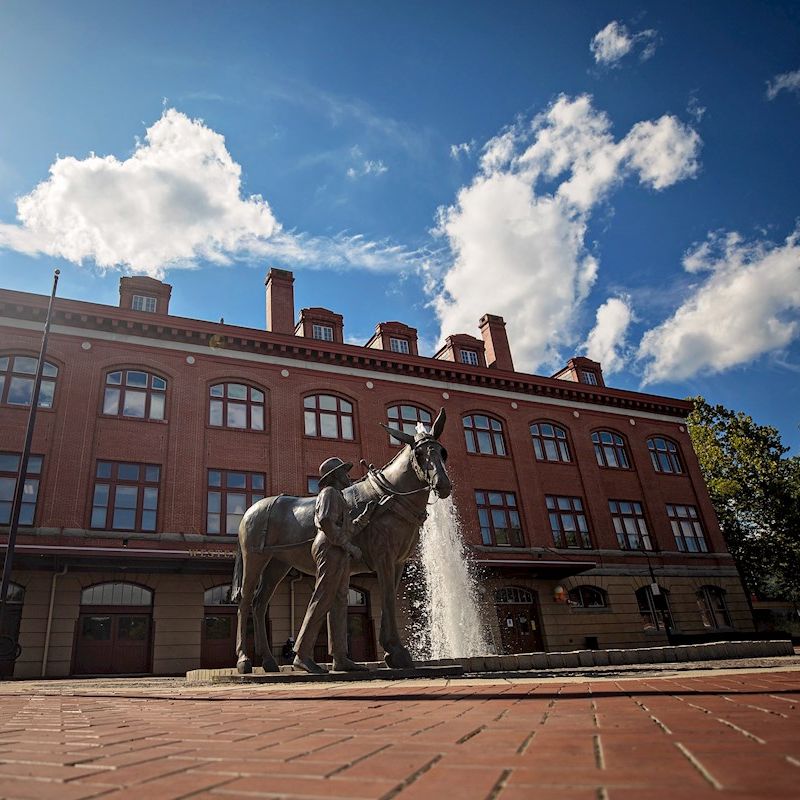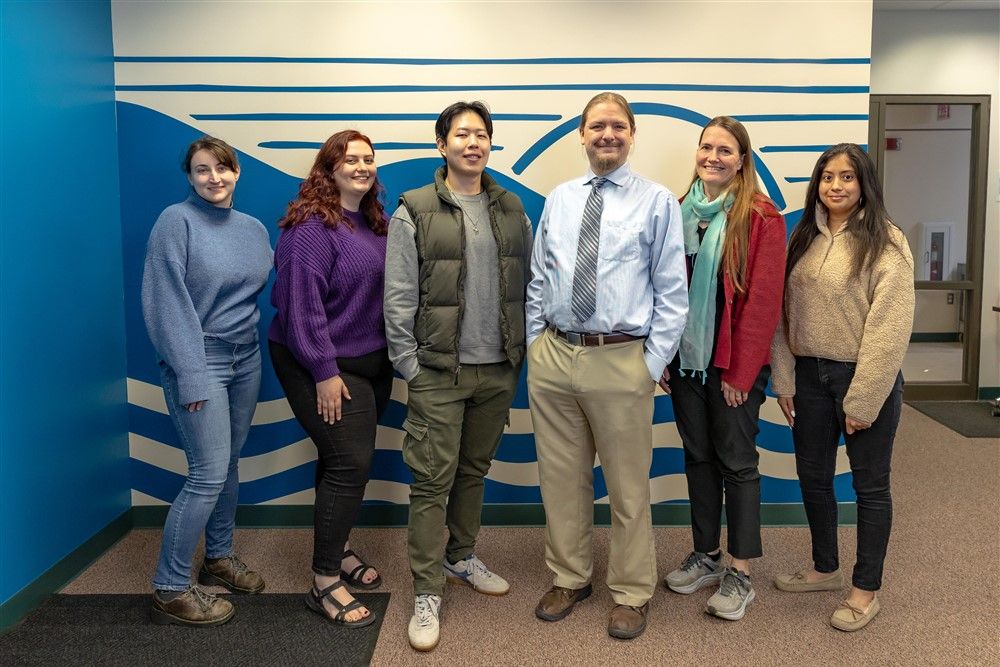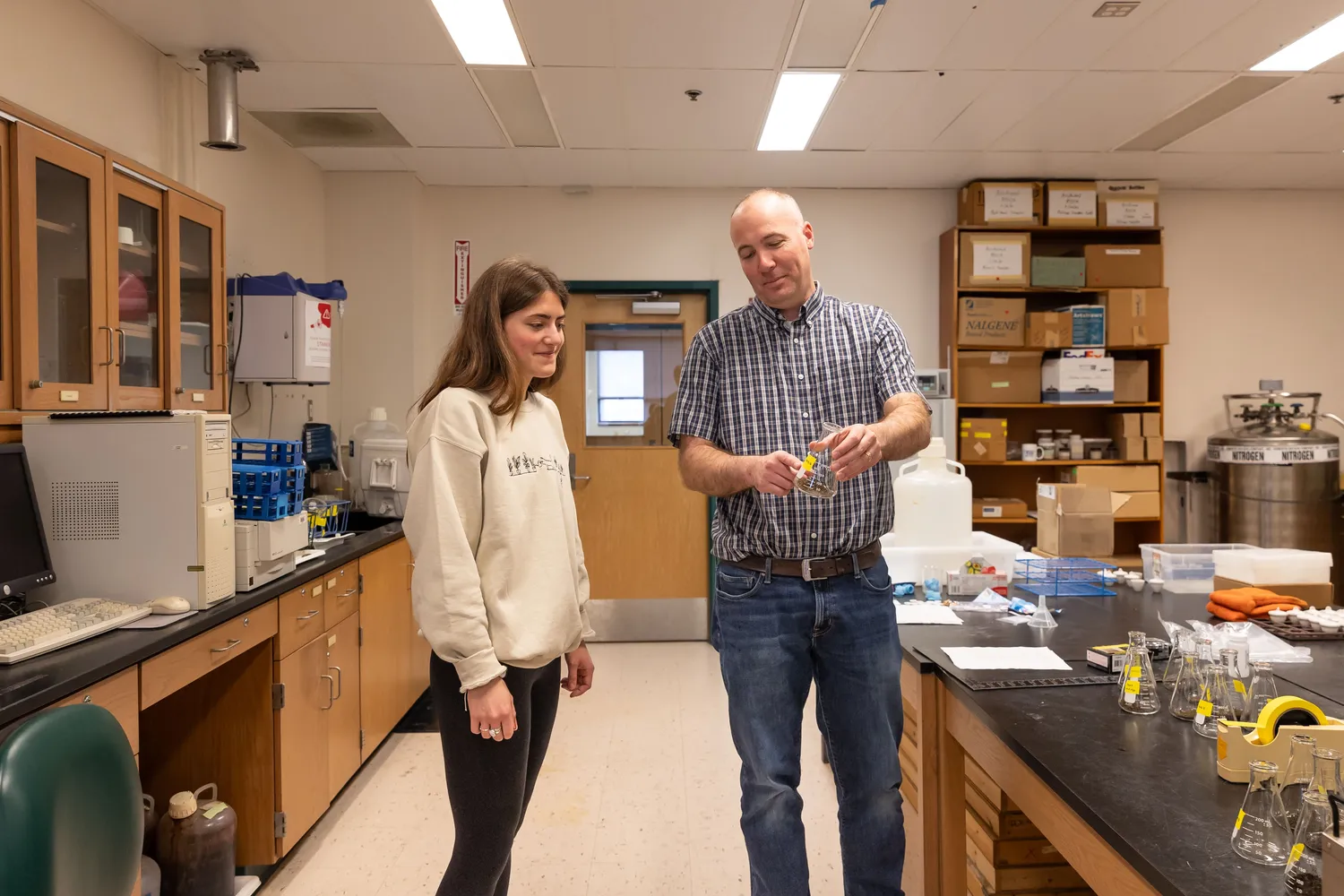
Since its establishment in 1962 in Allegany County the University of Maryland Center for Environmental Science (UMCES) Appalachian Laboratory has played a crucial role in researching the natural resources of Appalachia. This institution contributes significantly to economic development in the region through its research activities, promotion of STEM careers, community engagement, and collaboration with local entities and businesses.
UMCES, Maryland’s graduate research university for the environment, operates four laboratories across Maryland with a mission to study, manage, and disseminate knowledge on natural resources, prepare the next generation of scientists, engage with communities, and address environmental challenges. The Appalachian Lab is the only facility in its network focusing on freshwater and terrestrial ecosystems.
Over 50 staff members at the lab participate in numerous projects aimed at raising public awareness about environmental science, encompassing challenges, issues, and solutions. Researchers cover a broad spectrum of environmental fields, including conservation, restoration, and the study of terrestrial and aquatic species.
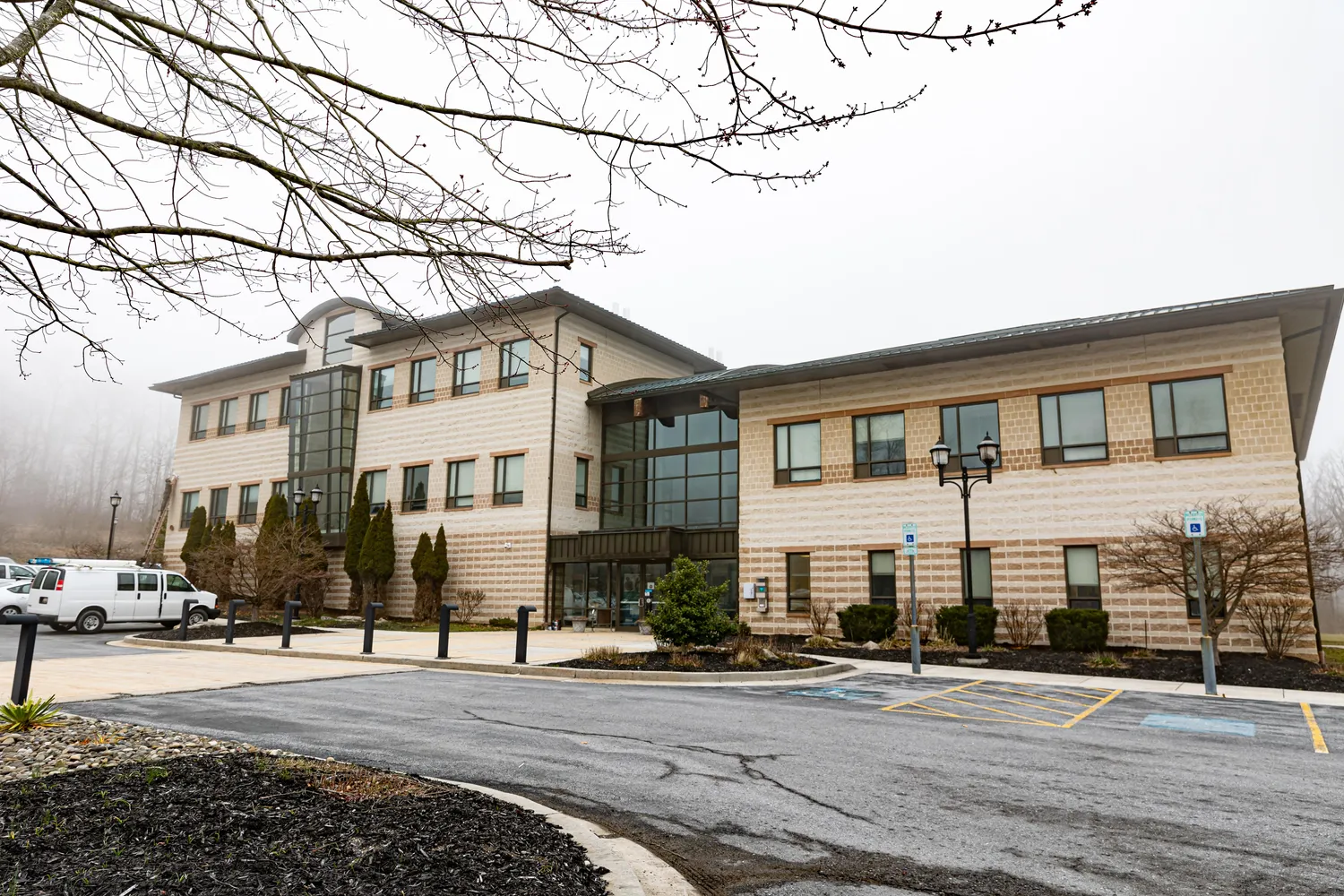
According to an independent economic impact study by Frostburg State University (FSU), the lab contributes $9 million annually to the local economy. “The Appalachian Lab is a place that residents are aware of, but may not fully see its essential role in our economy,” notes Adam Strott, Economic Development Specialist, Allegany County Economic and Community Development (ACECD).
The Appalachian Lab’s unique proximity to research sites is one of the reasons it attracts scientists and creates sought-after educational opportunities. Located near the headwaters of the Chesapeake Bay, the Appalachian Lab’s location affords easy access to vital environmental and economic resources for the state.
“It’s essential to be here [in Allegany County] and study what is happening with air, water, wildlife, forests, agriculture, and people because what happens here matters for the entire state.” - Dr. David Nelson, Appalachian Lab Director and Professor
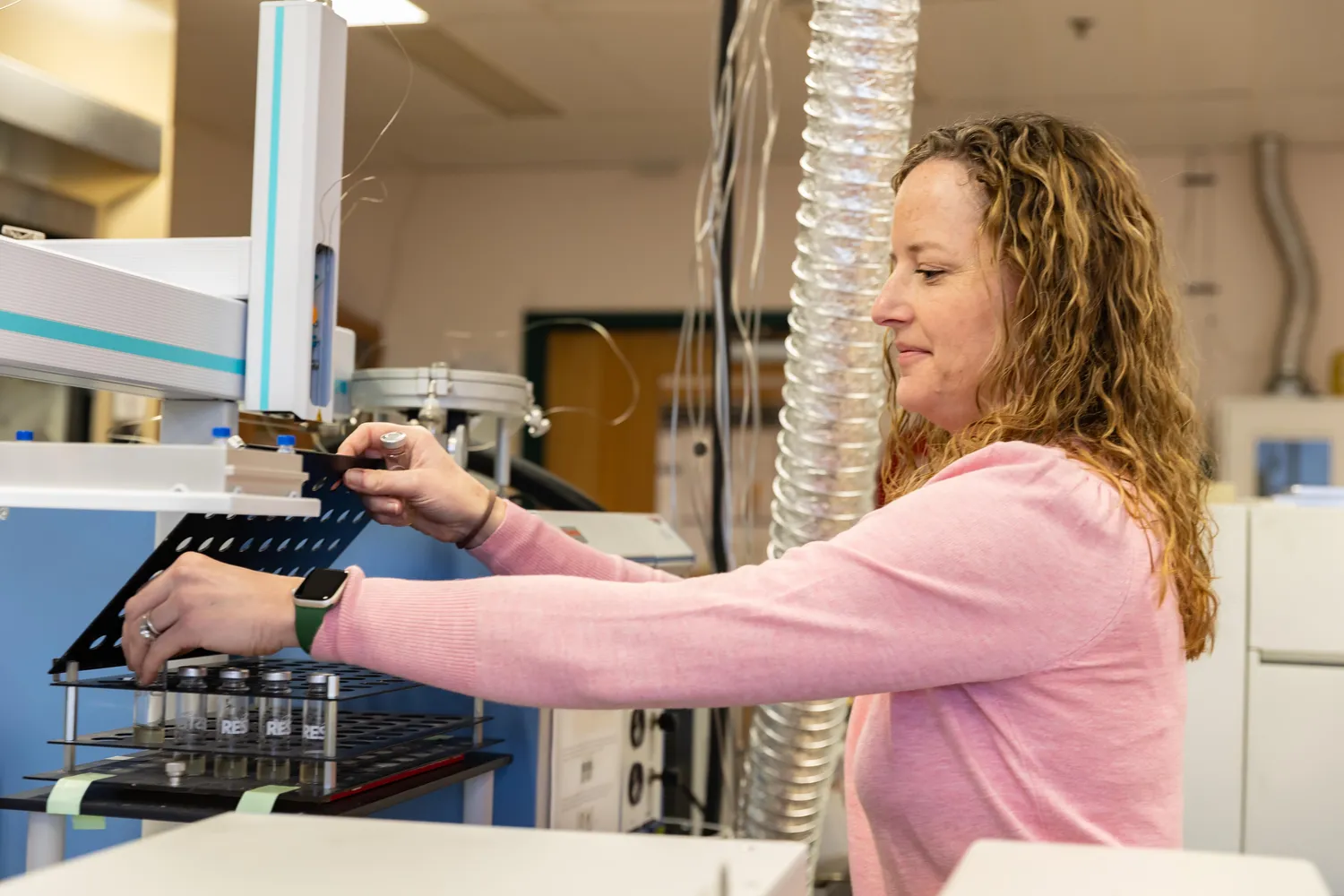
“Our work at the lab is ‘locally relevant and globally eminent.’ The issues studied in our faculty — such as sustainable agriculture or the health of our forests and wildlife— can have global implications beyond Appalachia, Maryland, or the United States,” emphasizes Dr. Nelson. “Because the work here has far-reaching impacts, graduate students join us from all over the world,” he adds.
Partnerships with FSU, like the new Master in Environmental Management in Sustainability Program, and the University of Maryland College Park enable students to leverage UMCES' environmental science resources for post-graduate doctorate and master’s program studies. On average, the lab hosts fifteen graduate students at a time. The students are mentored by one of fourteen faculty advisors at the lab who support their research and counsel students as they present their findings in proposals and papers.
Two years ago, the Appalachian Lab created a summer internship program to enrich opportunities for local undergrad students from FSU, Allegany College, Garrett College, and Potomac State College. Interns conduct field/lab research and participate in professional development programs. “A high proportion of those in the area are first-generation students,” says Rhonda Schwinabart, Appalachian Lab Coordinator of External Affairs. “This program provides undergraduate students with an opportunity to engage in world-class science locally, which is particularly important for those students who may not want to leave the area or who may lack the resources to do so,” impresses Schwinabart.
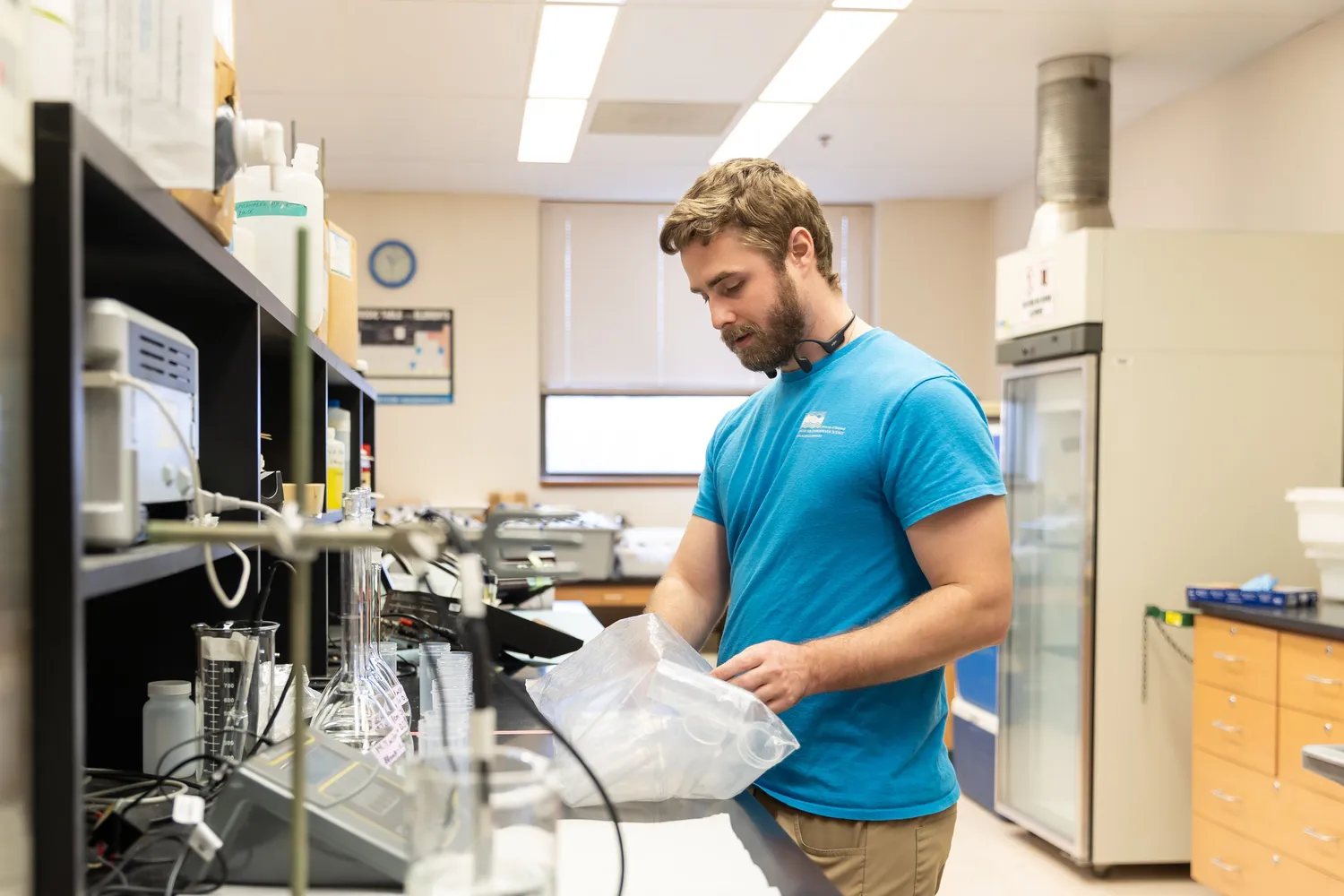
“The lab’s ability to educate incoming generations of scientists is part of why we’ve been here 60 years. The internship program facilitates the cycle by connecting undergraduates in Allegany County with mentors publishing in these fields and gives them a glimpse of future career opportunities,” adds Schwinabart.
Community engagement is a growing focus in continuing the Appalachian Lab’s legacy. Lab faculty have developed a K-12 curriculum to involve hundreds of students in real-world science and generate early excitement in the research process. The Appalachian Lab’s Citizen Scientist Program sees volunteers contributing data from regional sites to increase coverage and community involvement. One such experiment had participants plant American Chestnut trees as part of efforts to restore this once-widespread species.
“Our work at the lab is ‘locally relevant and globally eminent.’” - Dr. David Nelson, Appalachian Lab Director and Professor
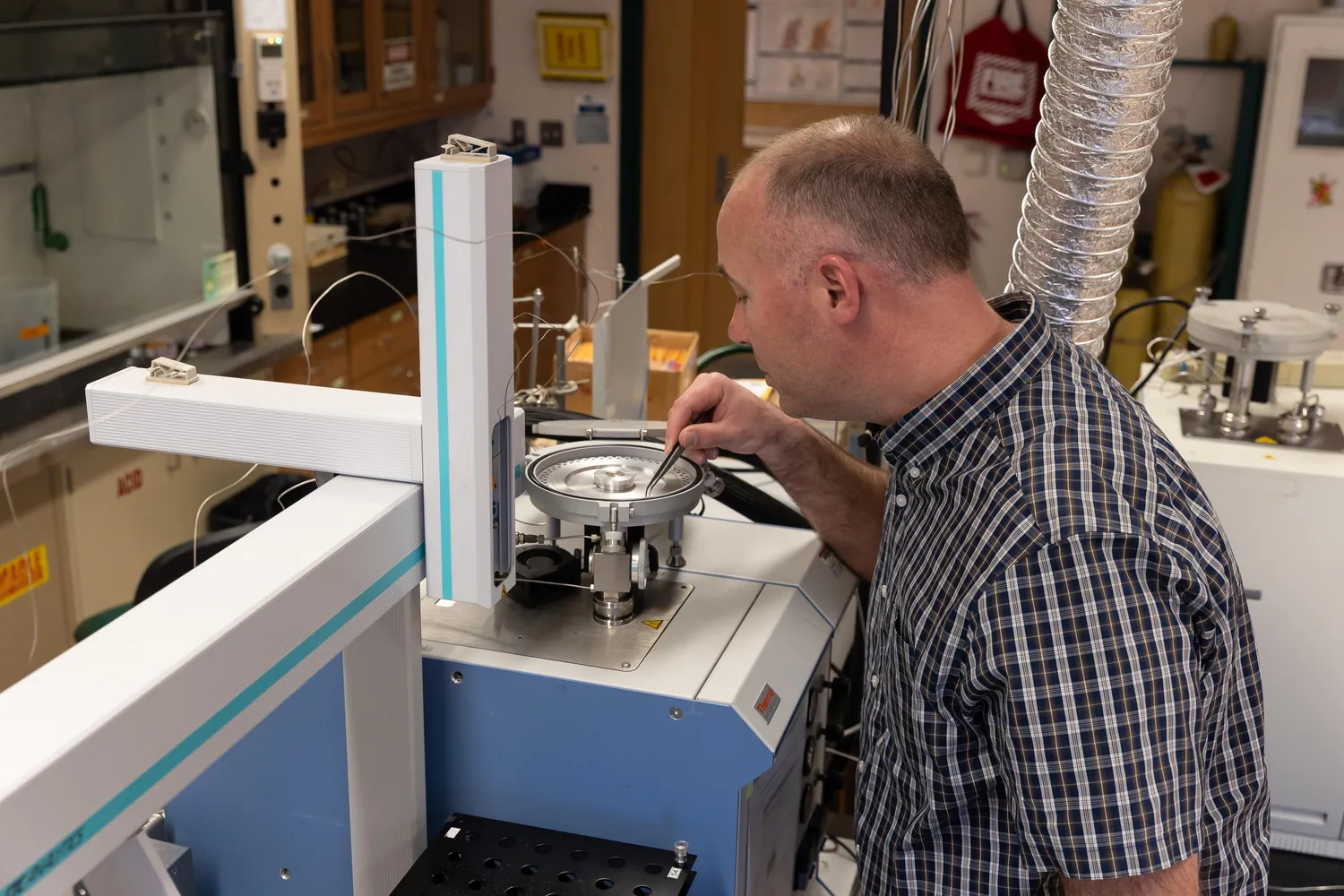
The ACECD is partnering with the Appalachian Lab on a “Cleantech Research and Development Grant” that will increase the lab's collaboration with local businesses in the circular economy. The grant offers businesses a way to subsidize research and development costs for environmentally-minded products and services using the resources at the Appalachian Lab.
“The lab has made impactful contributions to Allegany County for over 60 years. We look forward to educating the next generation, conducting groundbreaking research, and communicating about environmental science and sustainability even more in the coming decades,” finishes Dr. Nelson.
Click to learn more about the Appalachian Lab’s programs and read other Allegany County Economic and Community Development blogs.
